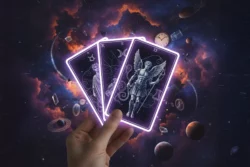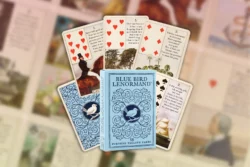Horoscopes

November 29, 2025
Travel Horoscope: Best Times to Travel and Dream Destinations by Sign

November 20, 2025
Temperance and Sagittarius Season Balance

November 15, 2025
2026 Reading – Which Should You Choose to Navigate the Year—Tarot, Astrology, or Numerology?

November 10, 2025
November 2025 Energy Horoscope – Align Your Vibe, Balance Your Chakras, Flow with the Cosmos

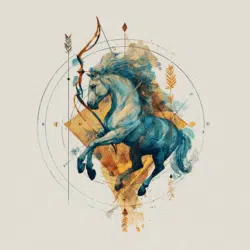
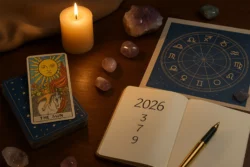
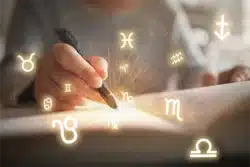
Zodiac Signs

December 23, 2025
Venus in Capricorn (Dec 24–Jan 17): Love with Purpose

December 18, 2025
Sagittarius New Moon 2025: Set Bold Intentions on December 19

December 14, 2025
Mars in Capricorn 2025 (Dec 15–Jan 23): Hard Work, Strong Will, Big Results

December 10, 2025
Mercury in Sagittarius 2025 (Dec 11–Jan 1): Straight Talk and Brave Ideas
Zodiac Calendar
The 12 Zodiac Signs
Aries Zodiac Sign
Taurus Zodiac Sign
Gemini Zodiac Sign
Cancer Zodiac Sign
Leo Zodiac Sign
Virgo Zodiac Sign
Libra Zodiac Sign
Scorpio Zodiac Sign
Sagittarius Zodiac Sign
Capricorn Zodiac Sign
Aquarius Zodiac Sign
Pisces Zodiac Sign
Chinese Zodiac
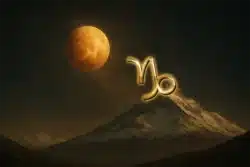



Love

November 12, 2025
Sacred Bonds: How Men Spiritually Distinguish a Lover from a Life Partner

November 11, 2025
Thankful for Pleasure: A Gratifying Move to Keep You Warm

November 9, 2025
The Femme Fatale Rises: Venus Dances Through Scorpio

November 5, 2025
Venus in Scorpio on November 6th: Intensity in Love and Desire
Love Horoscope
Zodiac Love Compatibility
Aries Love Compatibility
Taurus Love Compatibility
Gemini Love Compatibility
Cancer Love Compatibility
Leo Love Compatibility
Virgo Love Compatibility
Libra Love Compatibility
Scorpio Love Compatibility
Sagittarius Love Compatibility
Capricorn Love Compatibility
Aquarius Love Compatibility
Pisces Love Compatibility




Life

December 20, 2025
Celebrate Yule: Solstice Ritual and Tarot Wisdom in Community

December 19, 2025
Last-Minute Christmas Gift Ideas for Every Zodiac Sign

December 8, 2025
Christmas Movie Zodiac: Which Holiday Character Matches Your Sign?

November 30, 2025
Perfect Christmas Gift for Every Zodiac Sign (That You Won’t Find Everywhere)
Beauty
Career
Celebrities
Cooking
Decoration
Dreams
Entertainment
Fashion
Gardening
Kids
Medicine
Pets
Rituals
Travel
Well-being/Psychology
Witch Corner



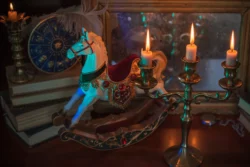
Astrology

December 23, 2025
Venus in Capricorn (Dec 24–Jan 17): Love with Purpose

December 18, 2025
Sagittarius New Moon 2025: Set Bold Intentions on December 19

December 14, 2025
Mars in Capricorn 2025 (Dec 15–Jan 23): Hard Work, Strong Will, Big Results

December 10, 2025
Mercury in Sagittarius 2025 (Dec 11–Jan 1): Straight Talk and Brave Ideas
Birth Chart Calculator
Astrology 101
Points in the Sky
Astrology Houses
The Ascendant (Rising) Sign
The 4 Elements in Astrology
Qualities in Astrology
Dignities in Astrology
Born on the Cusp
Psychic Readings




Numerology

November 21, 2025
Numerological Magic of 11/22: Mastery of the Self for Others

November 15, 2025
2026 Reading – Which Should You Choose to Navigate the Year—Tarot, Astrology, or Numerology?

November 12, 2025
Jenna Ortega Is a 22 — and That’s Where She Gets All Her Success

November 10, 2025
Unlocking the Magic of 11/11/2025: A Numerological Guide to the Eleventh Portal Day of the Year
Numerology 101
Life Path Number
Name Numerology Calculator
Soul Purpose Number
Angel Numbers
Lucky Numbers in Numerology
Pythagorean, Gematria and Chaldean Systems
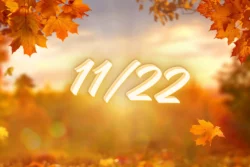


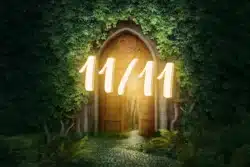
Tarot

November 15, 2025
Feeling Stuck? Let Tarot Show You What’s Next

November 15, 2025
2026 Reading – Which Should You Choose to Navigate the Year—Tarot, Astrology, or Numerology?

November 7, 2025
Dear Tarot: Is It Me or Mercury Retrograde? – Nov. 10th

November 5, 2025
Deck Review – Blue Bird Lenormand Oracle
Tarot 101
Yes or No Tarot
Major Arcana
Minor Arcana
Best Tarot Decks
How to Read Tarot Cards
Tarot Spreads Explained
Tarot Horoscope
Tarot Reading of the Month


